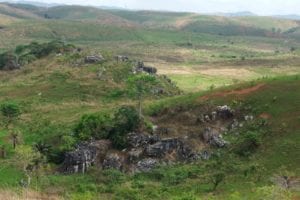The Democratic Republic of Congo (DRC) recorded growth of 9.5% in 2014, above the African average of 6%. In March 2015 Congolese Prime Minister Augustine Matata Ponyo adopted a bullish tone when he predicted ‘double digit’ growth for 2015.
By Darryll Kilian, Partner and Principal Environmental Scientist at SRK Consulting (SA) and Natasha Anamuthoo, Senior Environmental Scientist at SRK Consulting (SA). Against this backdrop, the DRC is seeing an increased demand for cement, as infrastructure projects and construction are amplified in the wake of improved confidence and trust in the country and its economy. However, according to South African cement manufacturer PPC: “At present, the DRC has 16kg per capita annual cement consumption, the lowest in Africa, compared with the South African average of 240kg and the global average of 400kg.”Solid cross-border collaboration
This statistic highlights the drive behind current investments being made in the sector by the likes of PPC and local company group Nyumba Ya Akiba. PPC, in partnership with local company Barnet and using the engineering skills of Sinoma International Engineering Company of China, is establishing a $280-million plant in the Lower Bas Congo in the Bas Congo Province.Construction began in December 2013 and the plant is expected to come online at the end of 2016. Nyumba, working in partnership with Pakistani engineering firm, Lucky Cement and Groupe Rawji of the DRC, is also expecting to become operational in late-2016 with its $255-million project, also in the Bas Congo Province.
SRK Consulting was afforded the opportunity to participate in environmental feasibility studies for both of these greenfield projects. A critical consideration impacting both projects was the fact that international funding of projects requires compliance with local DRC regulations as well as international standards and guidelines. SRK was able to interpret and align both requirements, thus ensuring that the ESIA reports met host country and Equator Principles Financial Institutions conditions.







